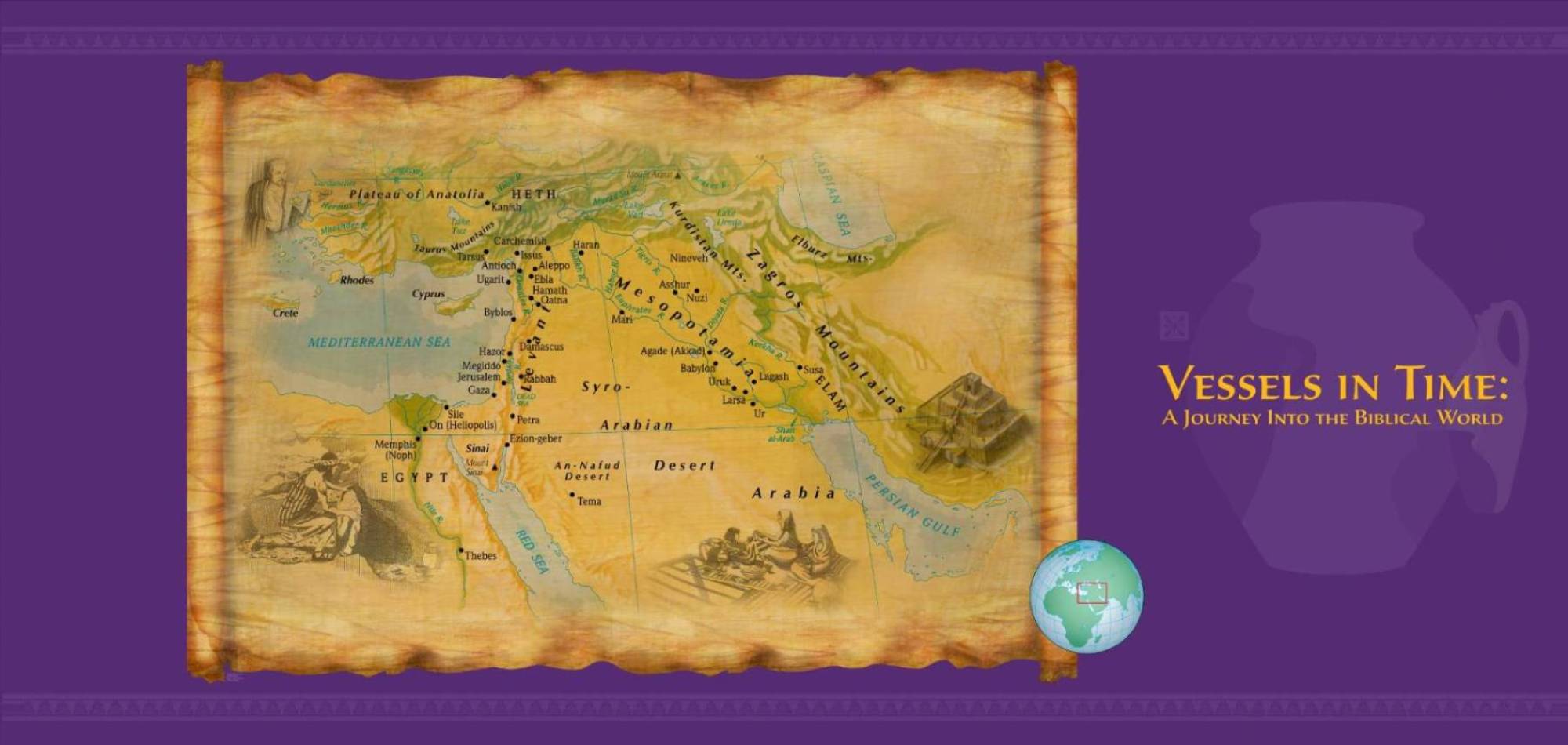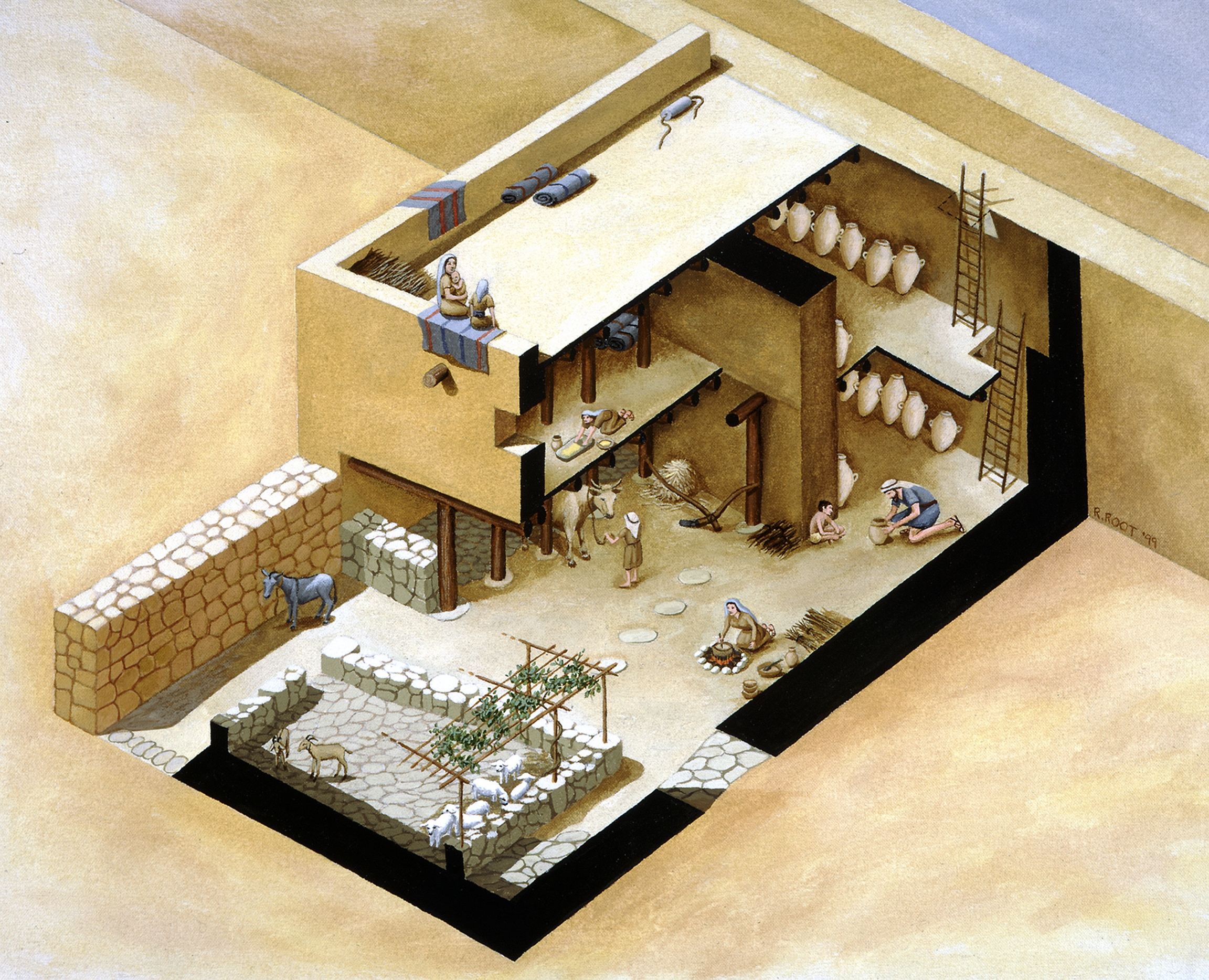
Agricultural Life in the Highlands
Iron Age I (1200 - 1000 B.C.)
The beit ab, or “house of the father,” was the basis of Israelite society. The father ruled over his household, as the king did over the house of Israel, and God over the children of Israel. Under this arrangement, the extended family lived together in one household, or family compound. Life revolved around agrarian activities that included animal husbandry and agriculture.
Weaving was an important aspect of life in Israel and was a skill passed on from mother to daughter from generation to generation. Most of the household cloth was woven from sheep's wool, though more durable goat hair was used for tenting and sackcloth. Raw wool was first spun into yarn with a hand-held spindle. The spindle was weighted with a ceramic weight called a “spindle whorl.” After being spun, the wool would be dyed and woven, using a loom, into cloth of various colors.
Olive oil played a part in almost every aspect of daily life in ancient Israel. It was used as the main source of dietary fat in food preparation, as fuel for lamps, and as a base for cosmetics, perfumes and ointments. It was also used in cultic settings where a priest or king was anointed. Olive trees and grapevines grew well in the hill country. Oil presses have been found at numerous sites, and this valuable commodity was exported throughout the Mediterranean world.
Oil from the first crushing, accomplished by rolling a stone over the olives on a
flat rock-cut installation, produces virgin oil, which is extracted by pouring hot
water over the crushed olives and skimming off the floating oil. Second-grade oil
is produced by pressing the pulp with a beam press.